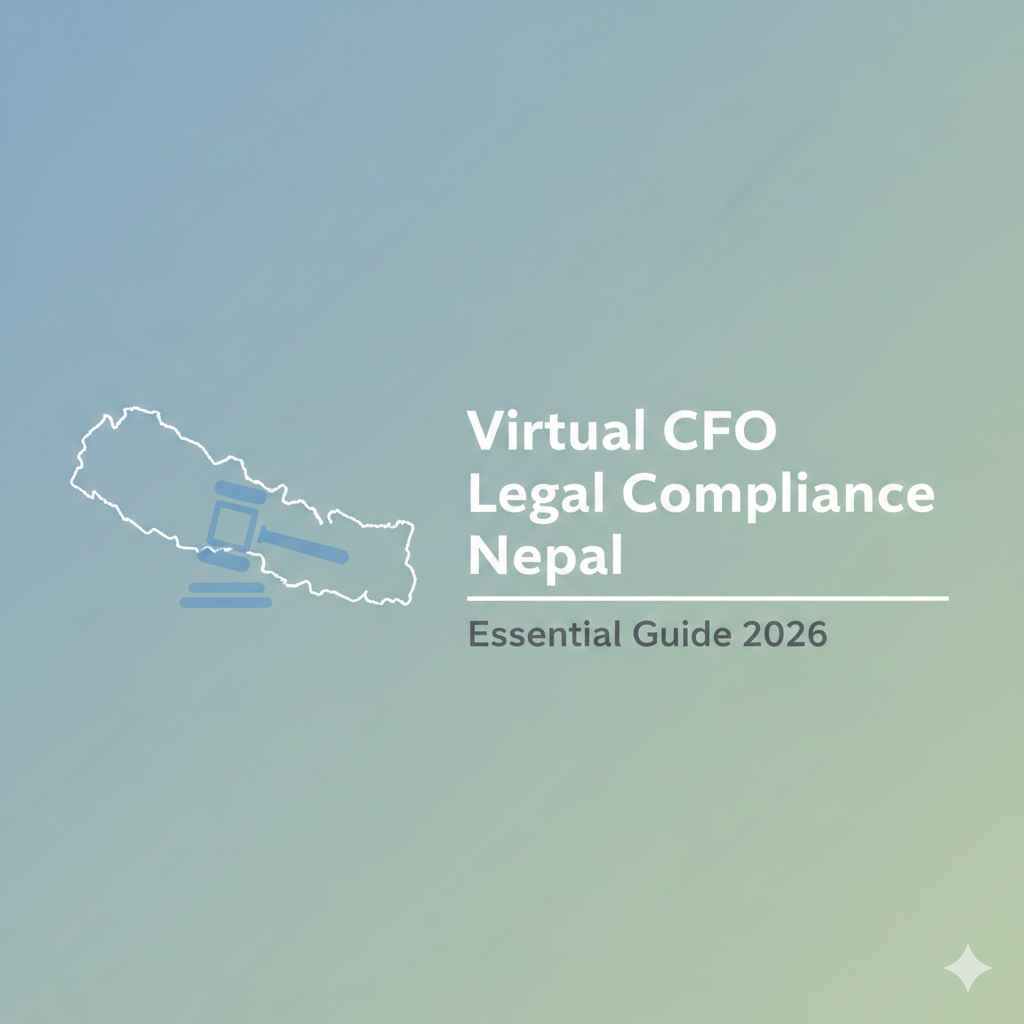
Introduction
Private company registration in Nepal has been simplified through digital processes. Entrepreneurs can now establish their businesses more efficiently. This comprehensive guide covers everything needed for successful registration.
What is Private Company Registration?
Private company registration involves legally establishing a business entity under Nepal’s Company Act 2063. The process creates a separate legal identity for your business. This registration provides limited liability protection to shareholders.
Legal Requirements for Private Company Registration
Basic Requirements
Private companies in Nepal must meet specific criteria:
| Requirement | Details |
|---|---|
| Minimum Shareholders | 2 persons |
| Maximum Shareholders | 101 persons |
| Minimum Capital | NPR 100,000 |
| Directors Required | Minimum 3 |
| Nepali Directors | At least 1 required |
Essential Documents Needed
The following documents are required for registration:
- Company Name Reservation Certificate
- Memorandum of Association
- Articles of Association
- Shareholders’ Agreement
- Directors’ Consent Letters
- Citizenship certificates of all directors
- Bank deposit slip for authorized capital
Step-by-Step Registration Process
Step 1: Name Reservation
Company names must be reserved through the Office of Company Registrar. The name should be unique and not conflict with existing companies. Reservation remains valid for 35 days.
Step 2: Document Preparation
Legal documents are prepared according to standard formats. These include memorandum and articles of association. Professional legal assistance ensures compliance with regulations.
Step 3: Capital Deposit
Authorized capital is deposited in a designated bank account. The deposit slip serves as proof of capital commitment. Banks require proper documentation for account opening.
Step 4: Application Submission
Complete application is submitted to the Company Registrar’s Office. All documents must be properly notarized and stamped. Digital submission is now available through online portals.
Step 5: Verification Process
Authorities verify submitted documents and information. This process typically takes 7-15 working days. Additional documents may be requested if needed.
Step 6: Certificate Issuance
Upon approval, the company registration certificate is issued. This certificate confirms legal establishment of the company. Business operations can commence after receiving this certificate.
Registration Fees and Costs
| Service | Cost (NPR) |
|---|---|
| Name Reservation | 100 |
| Registration Fee | 1,000 |
| Seal Making | 500 |
| Legal Documentation | 15,000-25,000 |
| Government Fees | 2,000-5,000 |
| Total Estimated Cost | 18,600-31,600 |
Timeline for Registration
The complete registration process typically takes 15-30 working days. Digital applications are processed faster than manual submissions. Proper document preparation can significantly reduce processing time.
Post-Registration Requirements
Tax Registration
Companies must register for VAT and income tax. This registration is mandatory within 30 days of establishment. Tax clearance certificates are required for various business activities.
Municipal Registration
Business license from local municipality is required. This registration enables legal business operations. Different municipalities have varying requirements and fees.
Social Security Registration
Employee social security registration is mandatory for companies with staff. This registration protects employee rights and benefits. Compliance ensures smooth business operations.
Benefits of Private Company Registration
Limited Liability Protection
Shareholders enjoy limited liability protection. Personal assets remain separate from business debts. This protection encourages entrepreneurial investment and risk-taking.
Credibility and Trust
Registered companies gain credibility with customers and suppliers. Banking relationships are easier to establish. Government contracts often require proper registration.
Growth Opportunities
Registered companies can access various funding sources. Investment opportunities become available through proper registration. International business expansion is facilitated.
Common Challenges and Solutions
Documentation Issues
Incomplete or incorrect documentation causes delays. Professional legal assistance prevents such problems. Proper preparation ensures smooth processing.
Name Conflicts
Similar company names create registration problems. Thorough name searches prevent conflicts. Multiple name options should be prepared.
Capital Requirements
Meeting minimum capital requirements can be challenging. Bank financing options are available for entrepreneurs. Proper financial planning ensures compliance.
Frequently Asked Questions
Q: How long does private company registration take?
A: The process typically takes 15-30 working days with proper documentation.
Q: Can foreigners register private companies in Nepal?
A: Yes, but foreign investment requires additional approvals from relevant authorities.
Q: What happens if minimum capital is not maintained?
A: Companies failing to maintain minimum capital may face penalties or deregistration.
Q: Is digital registration available?
A: Yes, online registration is available through the Company Registrar’s portal.
Q: Can company names be changed after registration?
A: Yes, but name changes require formal application and additional fees.
Q: What are the ongoing compliance requirements?
A: Annual returns, tax filings, and audit reports must be submitted regularly.
Conclusion
Private company registration in Nepal provides excellent opportunities for business growth. The process has been streamlined for entrepreneur convenience. Professional legal assistance ensures compliance and success. Start your registration journey today with proper planning and documentation.
Contact experienced legal professionals for personalized guidance. Proper registration opens doors to numerous business opportunities. Your entrepreneurial dreams can become reality through correct legal procedures.



